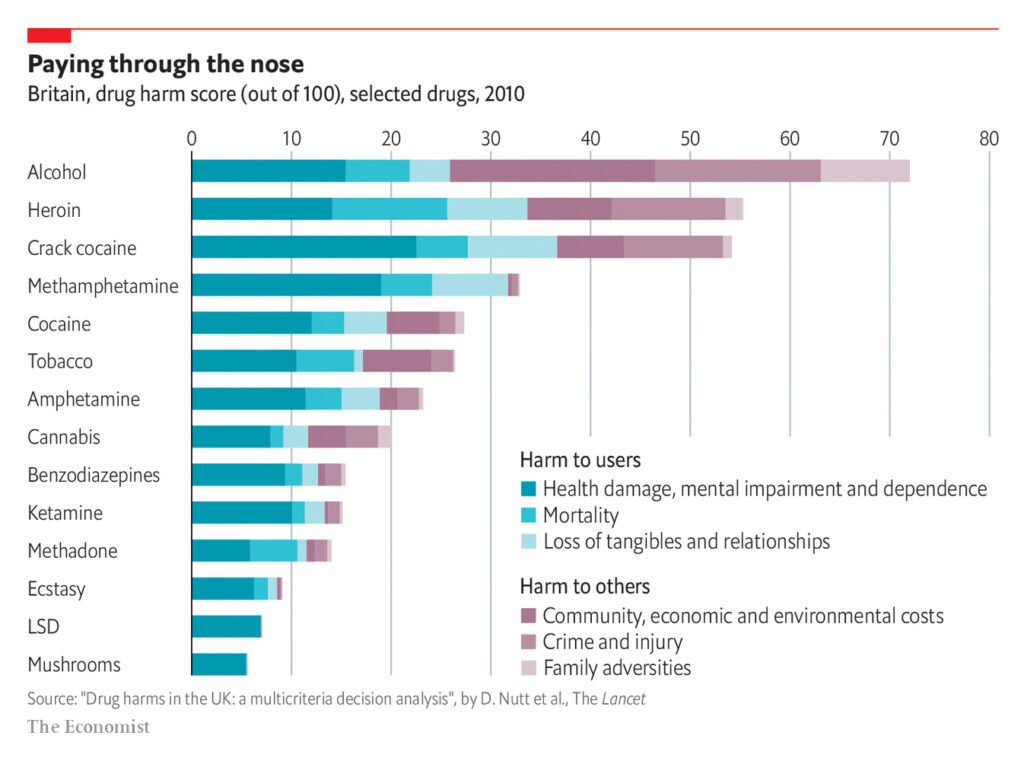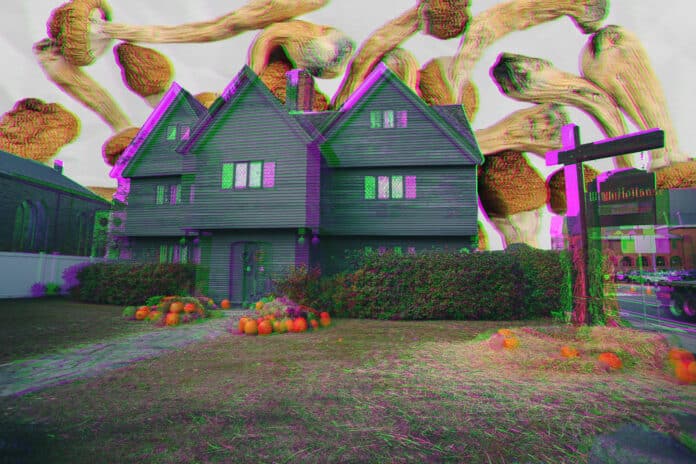Once infamous for its 17th century witch trials, the city of Salem, Massachusetts, is now pioneering a groundbreaking change. In a move that marks the end of a modern-day “witch hunt,” Salem has officially put a stop to arrests for psilocybin mushrooms. This decision makes it the sixth Massachusetts city to take such an initiative, following a unanimous city council vote in favor of the measure.
This historic move, which transpired on May 19, 2023, signals a shift in societal attitudes and legislative policies surrounding psychedelic substances, and particularly psilocybin mushrooms. It is a victory for the field of scientific research and the neurodivergent community, paving the way for life-saving explorations into the intricate intricacies of our brains.
Salem’s Decision to End Psilocybin Arrests
The decision to end arrests for psilocybin mushrooms comes at a time when this natural substance is gaining recognition for its potential therapeutic benefits. The city’s transition reflects a growing understanding of psilocybin’s safety profile and its role in mental health treatment.
The Safety of Psilocybin: A Closer Look
The safety of psilocybin has been increasingly validated by recent research. In a study published in the Journal of Psychopharmacology, it was revealed that only 0.2% of magic mushroom users required emergency medical care following use, primarily due to transient psychological discomfort rather than physical harm. Importantly, it is virtually impossible to suffer a lethal physical overdose from psilocybin.

Psilocybin vs. Alcohol: A Comparative Study
When compared to other substances such as alcohol, the safety of psilocybin becomes even more striking. To put this in perspective, the World Health Organization reports that approximately 3 million deaths per year are attributable to harmful alcohol consumption, which makes up 5.3% of all deaths globally. In stark contrast, psilocybin-related complications are rare and usually non-lethal.
The Role of Psilocybin in Mental Health Treatment
As an increasing number of Americans grapple with mental health issues such as depression, traditional treatment methods often fall short. In fact, conventional medications like SSRIs and SNRIs only improve symptoms in about 20 out of 100 people.
Neuroscientist Miyabe Shields, a resident of Salem, highlights the significance of this development, labeling it as a “win for science and the neurodivergent community.” The decriminalization of psilocybin mushrooms opens the doors for advanced research on the complex mechanics of our brains. Such exploration holds immense potential for life-saving breakthroughs, providing new opportunities for understanding and treating a variety of neurological and mental health disorders.
FDA’s Recognition of Psilocybin: A Breakthrough Therapy
The potential of psilocybin in treating mental health issues has not gone unnoticed by authorities. The FDA has officially classified psilocybin as a “breakthrough therapy” for depression, opening the door for further research and acceptance of this potent natural substance.
Psilocybin and other psychedelic options have proven to be literal lifesavers for many individuals who do not respond to traditional pharmaceuticals. Unlike standard medications, which can take weeks to yield results, psychedelics can alleviate depression symptoms within hours.
The cessation of psilocybin mushroom arrests in Salem, Massachusetts, takes place within the broader context of evolving attitudes towards psychedelic substances. For instance, Health Canada recently granted special access to psychedelic-assisted therapy, reversing a 2013 policy that prohibited access to certain restricted drugs. These changes in legislative landscapes across the globe mirror a growing acceptance of the therapeutic benefits of psychedelics.
Personal Stories: The Transformative Power of Psilocybin
Michael Botelho, a disabled Marine Corp Veteran who served in combat during the Gulf War, shared his transformative experience with psilocybin mushrooms. After being prescribed over 160 different medications, including opiates, to manage his PTSD, it was psilocybin that finally offered him relief. For the first time in nearly 25 years, Botelho found he could sleep, overcome his addiction to opiates, and work again.
Psilocybin’s Influence on Harm Reduction
Beyond mental health, psilocybin has also demonstrated potential in the field of harm reduction. A large-scale study of 44,000 Americans discovered that psilocybin use is associated with a 40% reduced risk of suffering opioid addiction.
Psilocybin and the Opioid Crisis: A Potential Solution
Given the devastating opioid crisis, which resulted in 68,630 overdose deaths in the US in 2020 alone, the potential of psilocybin in reducing opioid addiction should not be ignored. Salem’s Chief of Police, Lucas Miller, has publicly supported the measure, emphasizing the importance of exploring the potential of psilocybin in addressing the opioid crisis.
Unexpected Supporters: Law Enforcement Endorsement
The endorsement from the city’s Chief of Police demonstrates the shifting perspective towards psilocybin and other psychedelics, even among law enforcement and public safety officials. It’s a promising sign of the changing attitudes and growing understanding of these substances’ potential benefits.
The end of psilocybin arrests in Salem did not happen overnight. It was the result of tireless efforts by the grassroots group, Bay Staters for Natural Medicine. This organization has been instrumental in implementing similar measures in other Massachusetts cities, including Somerville, Cambridge, Northampton, Easthampton, and Amherst.
Massachusetts Cities Joining the Psilocybin Movement
Salem is not alone in recognizing the potential of psilocybin. Other Massachusetts cities have also taken steps to end arrests for psilocybin mushrooms, signaling a broader shift in attitudes and policies across the state.
This trend of decriminalization is not unique to Massachusetts, as several other states and cities across the United States have also started to reform their policies regarding psilocybin mushrooms. States like Oregon and Maine took the initiative to decriminalize psilocybin mushrooms in November 2020 and March 2021, respectively, while California has passed a bill through the Senate, which has yet to be fully enacted.
Cities have also been at the forefront of this movement, with Denver, Colorado being the first to decriminalize psilocybin in 2019, quickly followed by Oakland, California. Santa Cruz, California, and cities within Massachusetts, like Cambridge, Northampton, and Somerville, have also enacted similar policies. Ann Arbor, Michigan, and several other cities, including Arcata, California, Detroit, Michigan, Seattle, Washington, and Port Townsend, Washington, have adopted a policy of treating the investigation or arrest of anyone in possession of entheogenic plants or substances as the absolute lowest law enforcement priority.
Notably, the District of Columbia has decriminalized psilocybin while also making arrests for possession a low priority for law enforcement. Meanwhile, some states like Connecticut and Texas have initiated research into the effects of psilocybin, indicating a growing interest in understanding its therapeutic potential.
Future Legislative Efforts: An Act Relative to Plant Medicine
Looking forward, Bay Staters for Natural Medicine is advocating for state legislation that would legalize home growing and sharing of psilocybin and related plants. This move could be a game-changer, further expanding access to these potentially life-changing natural substances.
Conclusion
The decision by Salem, Massachusetts to end arrests for psilocybin mushrooms marks a significant milestone in the shifting attitudes towards psychedelics and their potential therapeutic benefits. As we see more cities following suit, it’s becoming clear that the “witch hunt” is finally over. The dawn of a new era of understanding and acceptance of these natural substances is upon us.
